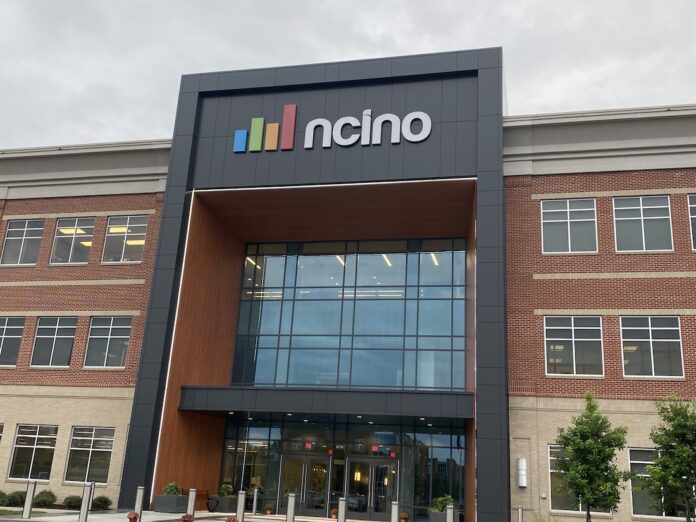
WILMINGTON — A Wilmington-based financial technology firm aims to increase efficiency by cutting more than 100 jobs, mostly in the U.S. Meanwhile, the company’s board approved a program to repurchase $100 million of its own stock, a common financial strategy that has come under controversy for diverting funds from productive investment to benefit shareholders.
READ MORE: nCino lays off 7% of workforce, CFO exits
As first reported by WilmingtonBiz, Wilmington-based software firm nCino announced Tuesday it will cut its global workforce by 7% and reduce office space. The firm has around 1,833 global employees with around 700 local jobs.
nCino Head of Brank Marketing told Port City Daily most of the job cuts will be in the U.S. and are not limited to a specific office location, group or division. The company has two U.S. offices; its Wilmington headquarters and a space in Lehi, Utah.
“As a global market-leader, nCino continuously evaluates our organizational structure to optimize operations and drive efficiency across the business,” Moose wrote in an email to PCD Tuesday.” To ensure our long-term success in the face of evolving market conditions, we’ve made the challenging decision to reduce our global workforce by approximately 7%. We are providing support to all affected employees throughout this transition and are grateful for their contributions to nCino’s success.”
Founded in 2011, nCino works with over 1,200 financial institutions worldwide, including TD Bank, Trust Financial, and Wells Fargo. The firm went public in 2020 and has expanded rapidly through acquisitions of software and fintech firms including FullCircl, SimpleNexus, DocFox, Integrated Lending Technologies, FinSuite and Sandbox Banking.
The company announced a similar 7% layoff in 2023. At the time, it had around 1800 employees, 650 of whom worked in its Mayfaire office with an additional 270 working remotely in the area.
“These strategic adjustments position us to accelerate innovation in the products and services our customers rely on,” Moose said. “By streamlining our operations, we’re investing more deeply in the capabilities that matter most to our customers’ success while maintaining our unwavering commitment to delivering exceptional service and support.”
nCino will publish its first quarter results after the market closes Wednesday. The company will report a better-than-expected performance in total revenue and subscription revenues, according to a preliminary financial results announcement last week.
Last month, the company announced its board of directors approved a plan to buyback up to $100 million in stock to boost shareholder value.
“Our stock repurchase authorization reflects the Board’s confidence in our long-term strategy and belief that repurchasing shares of nCino common stock at present valuations is a very attractive use of the Company’s capital,” nCino CEO Sean Desmond said in a release. “We are confident in our ability to generate increasing amounts of free cash flow and are committed to continue to strategically deploy capital where we believe it can generate stockholder value.”
When a company repurchases its own shares, it artificially boosts its own stock price. Supporters of stock buybacks argue they signal a board’s confidence and attract investment. Alternatively, critics including University of Massachusetts professor William Lazonick, argue they have a corrosive impact on the broader economy by prioritizing shareholder value over long-term investments in the company’s growth and workforce.
“Why have U.S. companies done these massive buybacks?” Lazonick asked in a 2020 Harvard Business Review article. “With the majority of their compensation coming from stock options and stock awards, senior corporate executives have used open-market repurchases to manipulate their companies’ stock prices to their own benefit and that of others who are in the business of timing the buying and selling of publicly listed shares. Buybacks enrich these opportunistic share sellers — investment bankers and hedge-fund managers as well as senior corporate executives — at the expense of employees, as well as continuing shareholders.”
nCino’s top five executives have been granted a total of $49.8 million in restricted stock awards over the last three years. Former CEO Pierre Naude’s compensation — who remains executive chair — included $7.4 million in stock awards last year. At least six of nCino’s directors own more than 100,000 shares of the company’s stock, according to the firm’s most recent annual SEC report.
Tips or comments? Email journalist Peter Castagno at peter@localdailymedia.com.
Want to read more from PCD? Subscribe now and then sign up for our morning newsletter, Wilmington Wire, and get the headlines delivered to your inbox every morning.
